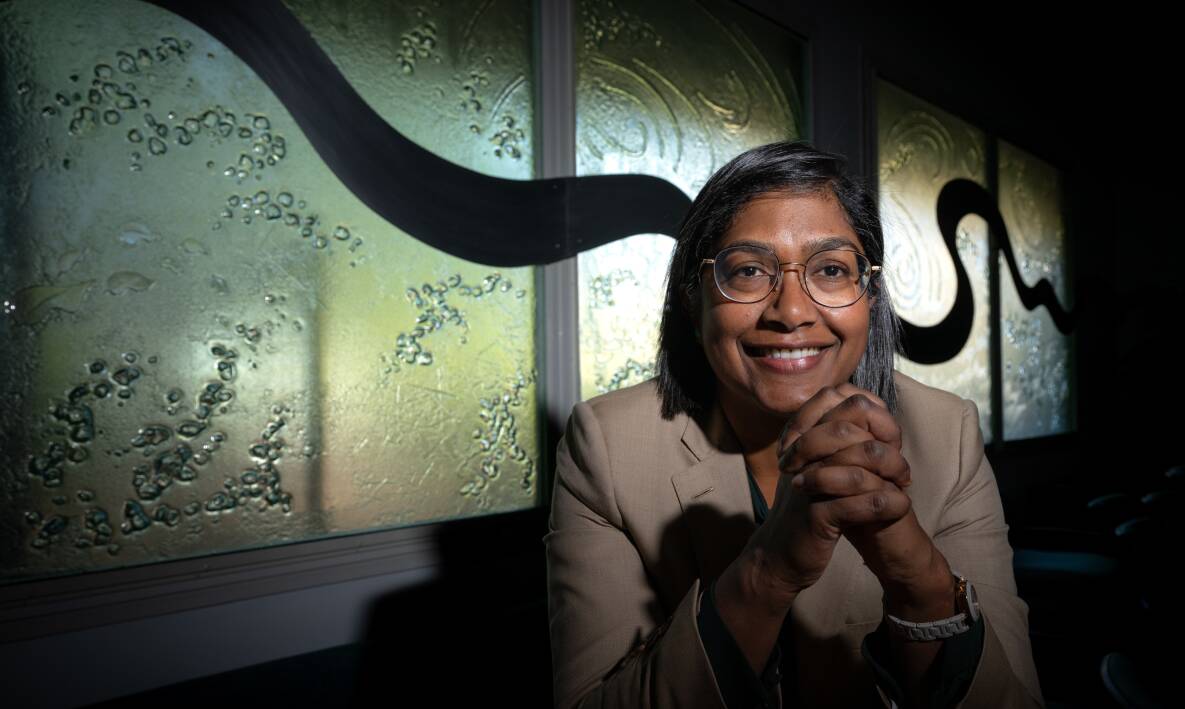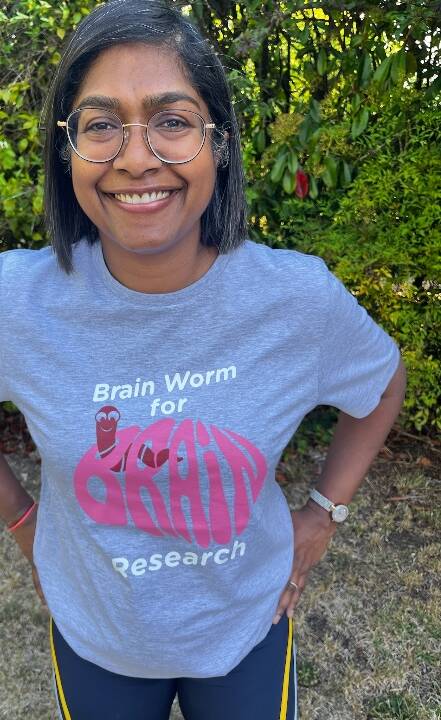She may forever be known as the "brain worm doctor" and Dr Hari Bandi is okay with that.
The Canberra neurosurgeon who made international headlines by extracting a live worm from a woman's brain in a world-first medical event is determined not to leave things there.
She's considering writing a children's book about the brain worm.
And is running in this weekend's The Canberra Times fun run with a team called Brain Worm for Brain Cancer, raising funds and awareness for a new Canberra-based charity called the Australian Brain Cancer Foundation.
She and her husband Shevarl MacNamara and their children Nova, two, and Orion, six, will be competing in the 5km run with her father Narasimha Bandi as well as other family and supporters.
Their aims are simple.
"Well, firstly to complete the run and make sure we all get across the finish line," she said, with a laugh.
"My father has been a keen runner for a long time in the Canberra community. He would normally do the 10k, but we've brought him back and he'll do the 5k.
"But the aim was really that this brain worm has garnered so much attention and really put Canberra on the map, could actually do some good.
"I went to a conference recently, and one of my mentors, said, 'Why don't you put it on a T-shirt? Why don't you write a children's book?'. He was saying it would be good to use all the attention it's gotten and funnel it for good."

Canberra woman Milena Skepev has founded the Australian Brain Cancer Foundation to raise funds for research and treatment of brain cancer for the benefit of patients in the ACT and surrounds.
Ms Skepev's daughter Zara and Zara's friend Mila Costa have already raised money for research at the Australian National University.
Dr Bandi said she wanted to work to raise the profile of the foundation and all the team would be running for it on Sunday.
She said the answer to brain cancer was not surgery, but research because event when tumours were removed, life expectancy was dire. The foundation would raise funds to be used locally.
"Charity money has often gone interstate in the past - Canberra has been a really big area where we've raised lots of money, but it's always gone interstate," she said. "So now here's a service that will help actually look after our patients in-state."
That was why the brain worm, despite all its grossness, had been such a happy occurrence. There had been a positive outcome, entirely from surgery. Before the worm was extracted, the woman had been facing a life expectancy of less than five years. Now she was leading a healthy, normal life. No one expected to find a live worm in the woman's brain.
"I assume it would have shown up more and more and she would have had more testing and at some point we would have found it," she said.

Dr Bandi, a former student of Charnwood Primary and Canberra High, said the discovery of the brain worm had resulted in people from around the world contacting her office about the worms they had in various parts of their body.
"We used to get 20 phone calls, 20 emails a day. It was kind of like, 'I saw your worm - look at my worm!'," she said.
But she's not a worm expert. She's a brain surgeon. So there was not much she could do.
"I think it's been an interesting side adventure," she said of the brain worm surgery.
"For me, I think it's just mean listen to patients, think outside the box when you're presented with a problem you don't have an answer to, be prepared to spend a bit more time on something."
The children's book about the brain worm could happen.
"It's an interesting Canberra story," she said.
Meanwhile, the 64-year-old woman who had the worm removed was doing "really well".
"There's no ongoing issues," Dr Bandi said. "All the lung lesions and liver lesions have largely gone away.
"We'll still be following it up because no one knows what happens in time. People have asked me, 'Is she cured?' and I don't think we know that. That's what's tricky with parasites. Most even normal parasite treatment, you might need waves of treatment over time, because they are so good at hiding in your body.
"I think that process will be many years before we stop doing scans."
And the infamous worm? It was sent to the CSIRO.
"They sliced it up for genetic typing," Dr Bandi said.
"But in my brain, the worm lives on quite red and vigorous."
- Sign up for the Canberra Times Fun Run on November 5. There are four distances to choose from - 2km, 5km, 10km, and 21.km. Register at solemotive.com/pages/canberra-fun-run-home







